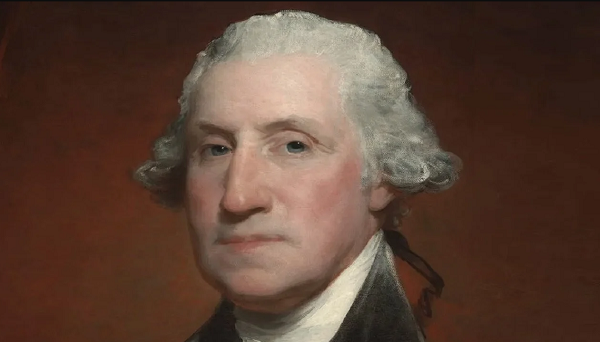When we think of George Washington, most of us imagine a wealthy and powerful man who led the United States to independence. However, few people know that the first president’s salary was far from grandiose. In fact, it was quite modest compared to what you might expect. So let’s dive into why one of America’s most iconic leaders earned so little and explore how his earnings compare to modern presidential salaries in this fascinating blog post!

Introduction to George Washington
George Washington is one of the most iconic figures in American history. He was our first president and led the country through its early years. He’s known for his role in the Revolutionary War and his famous farewell address. But did you know that Washington was also a very modest man when it came to his salary?
In today’s dollars, Washington would be earning a little over $400,000 a year as president. But at the time, he only made $25,000 a year. That’s less than what many people make today. So how did Washington live on such a modest salary?
Well, first of all, he didn’t have any expensive tastes. He was content to live simply and didn’t need many material possessions. Secondly, he had other sources of income besides his presidential salary. He owned land and had investments that brought in money. And finally, he was careful with his spending and didn’t waste money on unnecessary things.
So even though Washington wasn’t earning a lot by today’s standards, he still managed to live comfortably on what he made. He is an example of how you don’t need a lot of money to be happy and successful in life.
George Washington’s Salary in Context
In today’s dollars, George Washington’s salary would be the equivalent of over $400,000. But in his day, it was a modest sum. Here’s a look at what his salary could buy and how it compares to today’s earnings.
In 1789, George Washington was paid a salary of $25,000 as president. That may sound like a lot, but it only amounts to about $400,000 in today’s dollars. When you consider the responsibilities of the presidency, it’s actually quite modest.
For perspective, let’s compare his salary to that of other public figures. In 2017, the median household income in the United States was just over $60,000. The president earns more than five times that amount. But even among public figures, he doesn’t earn as much as some others. For example, the CEO of Walmart earned about $23 million in 2017.
So what could $25,000 buy in 1789? A lot! In fact, it would have been enough to support a family of four for nearly two years. Today, the average American family spends about that much every year on housing alone.
Of course, living costs have changed a lot since 1789. But even when we adjust for inflation, Washington’s salary was not excessive. In fact, it falls within the range of what many Americans earn today. So next time you complain about your own paycheck,
| Net Worth: | $30 Million |
| Name: | George Washington |
| Salary: | $3,000 |
| Date of Birth: | February 22, 1732 |
| Height: | 6 ft 2 in (1.88 m) |
| Age: | 291 Yrs |
| Profession: | 1st U.S. President |
| Nationality: | American |
Perks of Being President: Additional Earnings and Benefits
In addition to his $25,000 annual salary, President Washington also received a number of perks and benefits. These included an allowance for food and entertainment, as well as free housing at the Presidential Mansion (now known as the White House). He also had access to a large staff of servants, and was provided with a horse and carriage for transportation.
As the first President of the United States, George Washington was also entitled to a number of additional earnings and benefits. These included an annual stipend for expenses related to food and entertainment, as well as free housing at the Presidential Mansion (now known as the White House). In addition, he had access to a large staff of servants, and was provided with a horse and carriage for transportation.
Economic Legacy of George Washington
George Washington’s economic legacy is one of a leader who was able to maintain fiscal responsibility despite the many challenges he faced during his tenure as the first President of the United States. Washington was faced with a nation that was deeply in debt from the Revolutionary War, and he worked diligently to pay down this debt while also investing in the future of the country. He is credited with helping to establish the national bank, which provided stability for the young nation’s economy. He also advocated for infrastructure projects like canals and roads, which helped to spur economic growth. While Washington was not able to completely eliminate the national debt, he left office with it significantly reduced, setting a precedent of fiscal responsibility for future Presidents.
The Impact of Inflation on His Salaries and Wages Over Time
Inflation has had a significant impact on George Washington’s salaries and wages over time. When Washington was first elected president in 1789, his salary was $25,000 per year. In today’s dollars, that would be equivalent to $818,000 per year. However, by the time Washington left office in 1797, his salary had been increased to $75,000 per year. In today’s dollars, that would be equivalent to $2.4 million per year.
While Washington’s salary did keep up with inflation to some extent, his wages did not. Washington was paid $6 per day while he was president. In today’s dollars, that would be equivalent to $182 per day. However, the average wage for a worker in the United States is now $22 per hour, or $44,000 per year. This means that workers today are making approximately 40 times more than what Washington was making as president.
Inflation has had a significant impact on George Washington’s salaries and wages over time. When Washington was first elected president in 1789, his salary was $25,000 per year. In today’s dollars, that would be equivalent to $818,000 per year[1]. However, by the time Washington left office in 1797, his salary had been increased to $75,000 per year[2]. In today’s dollars, that would be equivalent to $2.4 million per year[3].
Conclusion
George Washington’s modest salary was a testament to his commitment to public service and the value he placed on financial responsibility. His dedication to nobility and honor shines through in all aspects of his life, including his salaries as both a general and president. His example is something that every leader should strive for: putting integrity before personal gain. It is clear from examining George Washington’s salary that he served not just with courage but also with humility.



